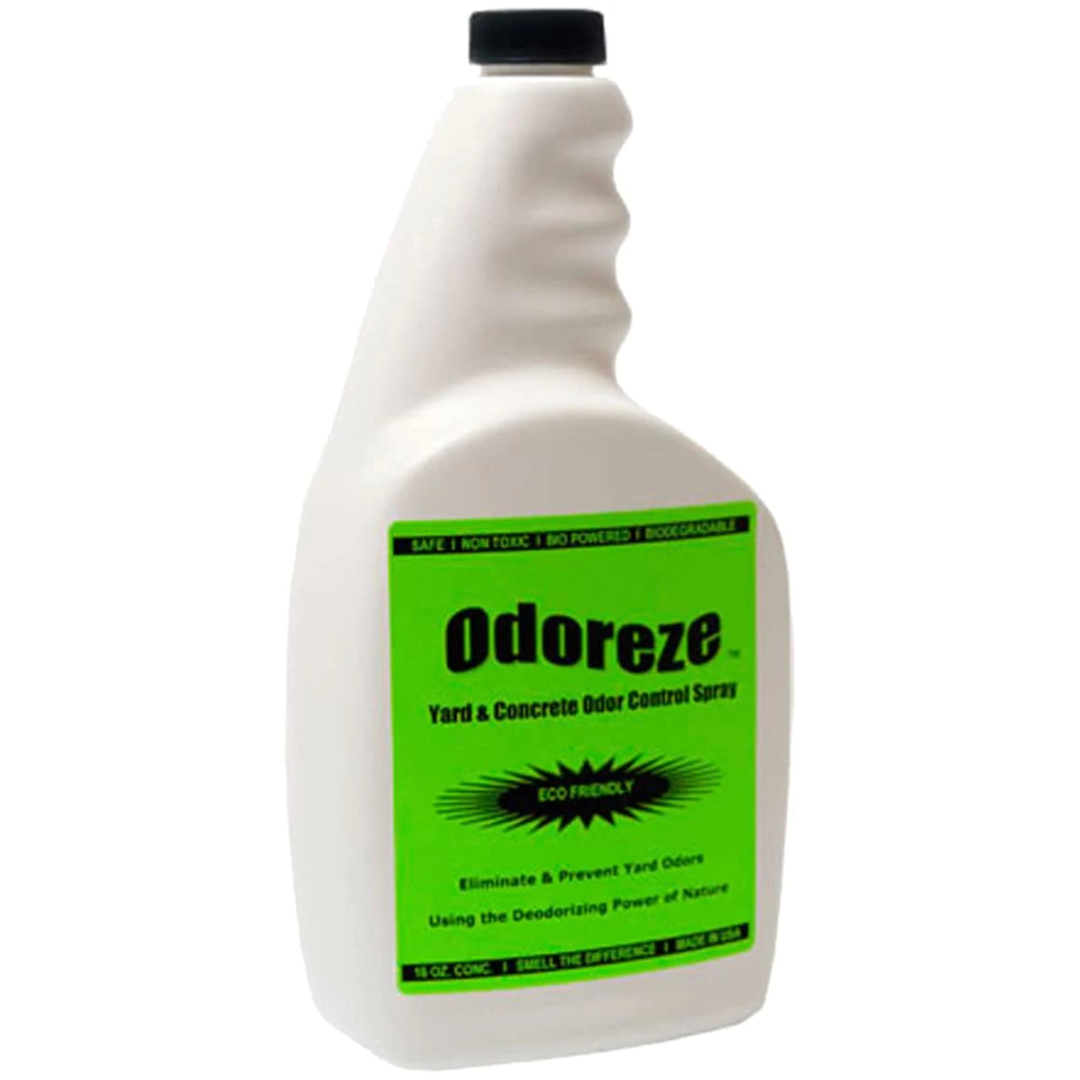Physical Address
304 North Cardinal St.
Dorchester Center, MA 02124

If your microwave smells like chemicals, it could be a sign of burnt food residue or plastic components overheating. Regular cleaning and maintenance are crucial to prevent these odors.
A chemical smell emanating from your microwave is often alarming and a sign that something’s amiss. Microwaves are kitchen staples used daily for reheating meals, defrosting foods, and sometimes even for cooking. Such smells can indicate a simple issue, like lingering odors from past meals, or a more serious problem, such as melting interior parts.
To ensure the safety and longevity of your appliance, it’s essential to identify the cause of the unusual scent promptly. By addressing the issue, you maintain a healthy cooking environment, protect your appliance from potential damage, and extend its functional lifespan. Regular checks and responsiveness to such odors will keep your microwave running efficiently and safely.
Picture this: You’re ready to heat up a meal, and a waft of unexpected and unpleasant chemical smells hits you. Not the best start, right? Microwaves, the trusty workhorses of the kitchen, are no strangers to weird smells. These odors can transform from mere annoyances to concerns for your health. Let’s dive into understanding these smells and what they signal about your microwave’s well-being.
Various culprits can be at play when your microwave starts emitting a chemical scent. Some might be lingering food particles, while others could be more sinister, like deteriorating internal components. Here’s a quick look at some usual suspects:
It’s not just a matter of bad smells; there’s a health dimension too. Whether it’s a minor headache or a serious allergic reaction, chemical odors can pose risks. Here’s why paying attention matters:
| Symptom | Potential Cause |
|---|---|
| Respiratory issues | Inhalation of toxic fumes |
| Headaches or dizziness | Exposure to overpowering odors |
| Allergic reactions | Sensitivity to chemical vapors |
Understanding what that smell means can keep you safe. Stay tuned for in-depth insights on addressing and preventing these microwave mishaps.

Credit: noodor.com
Your microwave is an essential kitchen tool, helping you quickly heat up meals and beverages. But what happens when an unpleasant chemical smell starts wafting every time you use it? Identifying why your microwave smells like chemicals is crucial for your health and safety. Let’s uncover the mystery together.
Chemical odors can vary, but there are common clues to look out for:
To find where the smell comes from, consider these steps:
A visual inspection might reveal the smell source, helping you address the issue safely.
Dealing with an unexplained chemical smell in your kitchen can be unsettling. Your microwave should never emit such odors, so it’s critical to act swiftly. Here are immediate steps to reduce exposure to potentially harmful smells from your microwave.
Start by opening windows and doors to let fresh air flow through the space. A well-ventilated area dilutes the intense odor, making it safer to breathe. Use fans to push the chemical smell outside.
Stop using your microwave immediately if you detect a chemical smell. Turn it off, and unplug it from the power source. This prevents the further release of chemical fumes.

Credit: www.onegoodthingbyjillee.com
When a microwave emits a chemical smell, it’s worrying and unpleasant. Instead of using harsh chemicals that might make matters worse, natural remedies come to the rescue. These solutions not only neutralize bad odors but are also safe and easy to use. Let’s dive into simple, proven methods that will return your microwave to its odor-free state.
Battle microwave odors with a mighty vinegar solution. Vinegar, a natural disinfectant, also deodorizes without leaving a harmful residue. Create a deodorizing steam by mixing equal parts of water and vinegar in a microwave-safe bowl. Heat this mixture until it boils and steams up the microwave. The steam will envelop the interior, capturing and neutralizing odors. After, simply wipe down the interior with a clean cloth.
Lemons work wonders against stubborn smells. Their natural acidity cuts through odor-causing agents, leaving a fresh, clean scent. To use, slice a lemon, place the pieces in a bowl of water, and microwave them until the water boils. The lemon-infused steam cleanses the microwave’s interior. Once cooled, wipe the surfaces with a soft cloth to reveal a fresh-smelling appliance.
Baking soda is famous for absorbing and neutralizing odors. If immediate action isn’t necessary, a more passive approach with baking soda can be effective. Sprinkle baking soda on a plate and leave it inside the microwave when not in use. Baking soda’s porous structure will slowly but surely take in the offensive odors. Replace it monthly to maintain a scent-free microwave.
Deep Cleaning Techniques are crucial when combating persistent smells in your microwave. An odd chemical odor could signify leftover food particles, grease build-up, or even packaging chemicals lingering inside. Whatever the cause, a thorough deep clean can transform your microwave from smelling like a chemistry lab back to its fresh, neutral state. Properly executed, these techniques will not just mask the odors, but eliminate them.
Start by unplugging the microwave to ensure safety. Remove the glass tray and turntable ring. Wipe down the interior with a soft cloth. Take out any removable parts like the carousel or racks. Soak them in warm, soapy water.
opt for natural cleaners like vinegar or lemon. They’re effective and won’t leave harmful residues.
| Cleaning Solution | Instructions |
|---|---|
| Vinegar and Water | Mix in a bowl, heat in the microwave, and let steam. |
| Lemon Juice and Water | Combine, heat up, and use steam to loosen grime. |
| Baking Soda Paste | Apply on stubborn stains, and wipe after a few minutes. |
After cleaning, leave the microwave door open. This allows air circulation and ensures complete drying. Use a dry cloth to absorb excess moisture. Check for nooks and crannies where water might hide. A fully dry microwave prevents mold growth and maintains a safe, clean appliance.
Banishing stubborn microwave odors can seem daunting. Yet, long-term solutions and preventive measures can make a difference. These strategies will help keep your microwave fresh and functional for the long haul. They are simple, effective, and easy to incorporate into your daily routine.
Scheduling regular cleaning is vital for a smell-free microwave. Think of it as routine maintenance for your kitchen’s handy helper.
Using your microwave correctly can prevent odors before they start. This includes simple but often overlooked practices.
Certain products are effective at keeping odors at bay. They are designed to absorb or neutralize smells.
| Product Type | How It Helps |
|---|---|
| Odor absorbers | Neutralize odors with activated charcoal. |
| Microwave Cleaners | Specific formulas to break down food residues. |
| Steam Cleaners | Use steam action to loosen stubborn smells. |
Encountering a chemical odor in your microwave is not just unpleasant – it could signal a safety issue. The odor might stem from various causes such as burnt food residues, a faulty part, or even electrical problems. Knowing when to call in a professional is essential to ensure both your appliance and home remain safe.
Odd smells from your microwave should never be ignored. Here’s when to seek expert assistance:
Choosing the right repair service is critical. Consider these steps:
When your microwave starts to emit a chemical smell, it’s a clear sign something isn’t right. Finding the source of the smell can be tricky, and sometimes, repairing your old microwave could cost more than it’s worth. In such cases, considering a new microwave may be the best solution. Not only will you eliminate those unpleasant odors, but you’ll also get to enjoy the latest features and technologies that come with new models.
Determining whether to replace your microwave can depend on a few factors. Take a look at the potential costs for repair and compare them against the expense of purchasing a fresh model. Consider the age of your microwave; if it’s close to or past its expected lifespan, replacement might be the smarter move. A new microwave also gives you a chance to upgrade to a more efficient and safer appliance.
Selecting a microwave that suits your culinary needs and kitchen space is important. Remember to ensure it has all the functions you frequently use and fits where you plan to place it. By choosing wisely, you’ll enjoy a scent-free cooking experience for years to come!

Credit: noodor.com
Microwaves can emit chemical smells due to manufacturing residues, burnt food particles, or malfunctioning components. Regular cleaning and airing out the appliance after use can help minimize odors. If the smell persists, consider having it checked by a professional.
A persistent chemical odor from a microwave could indicate a potential hazard, like an electrical issue or overheating components. If you notice a strong smell, unplug the appliance and contact a technician to ensure safe usage.
To remove chemical smells, mix equal parts vinegar and water in a microwave-safe bowl and heat for several minutes. The steam helps loosen the residue. Wipe the interior with a soft cloth afterward.
New microwaves may emit a temporary chemical odor due to factory coatings or packaging materials. It usually dissipates after a few uses. Ensure to ventilate the area well and clean the microwave before initial use.
Dealing with unpleasant odors from your microwave can be disconcerting. Thankfully, you now have the know-how to tackle them effectively. Simple cleaning hacks and maintenance tips help ensure a fresh, chemical-free scent. Remember, regular upkeep keeps your kitchen safe and your microwave in top shape.
Stay vigilant and enjoy a clean-scented, efficient appliance day after day.